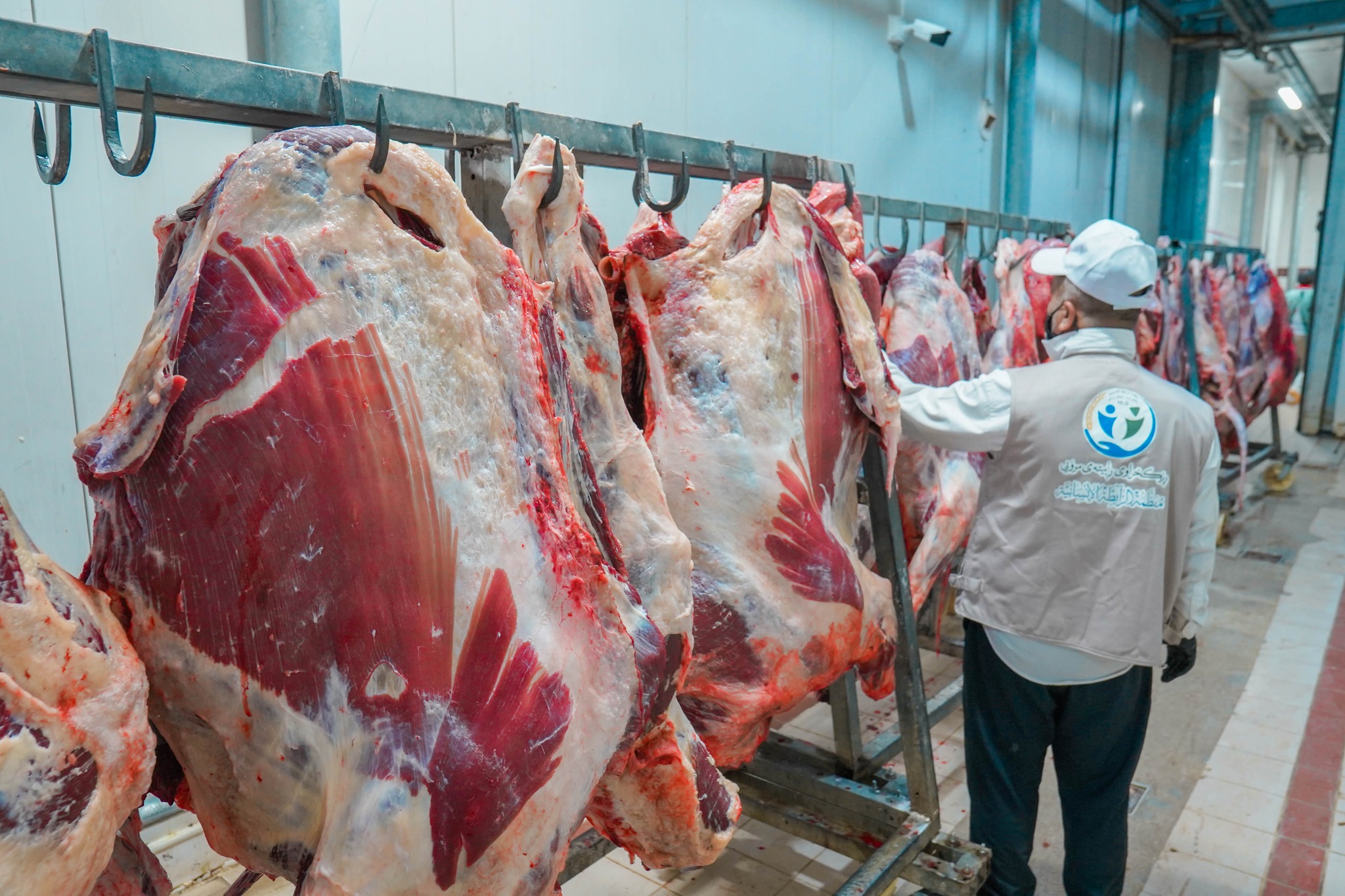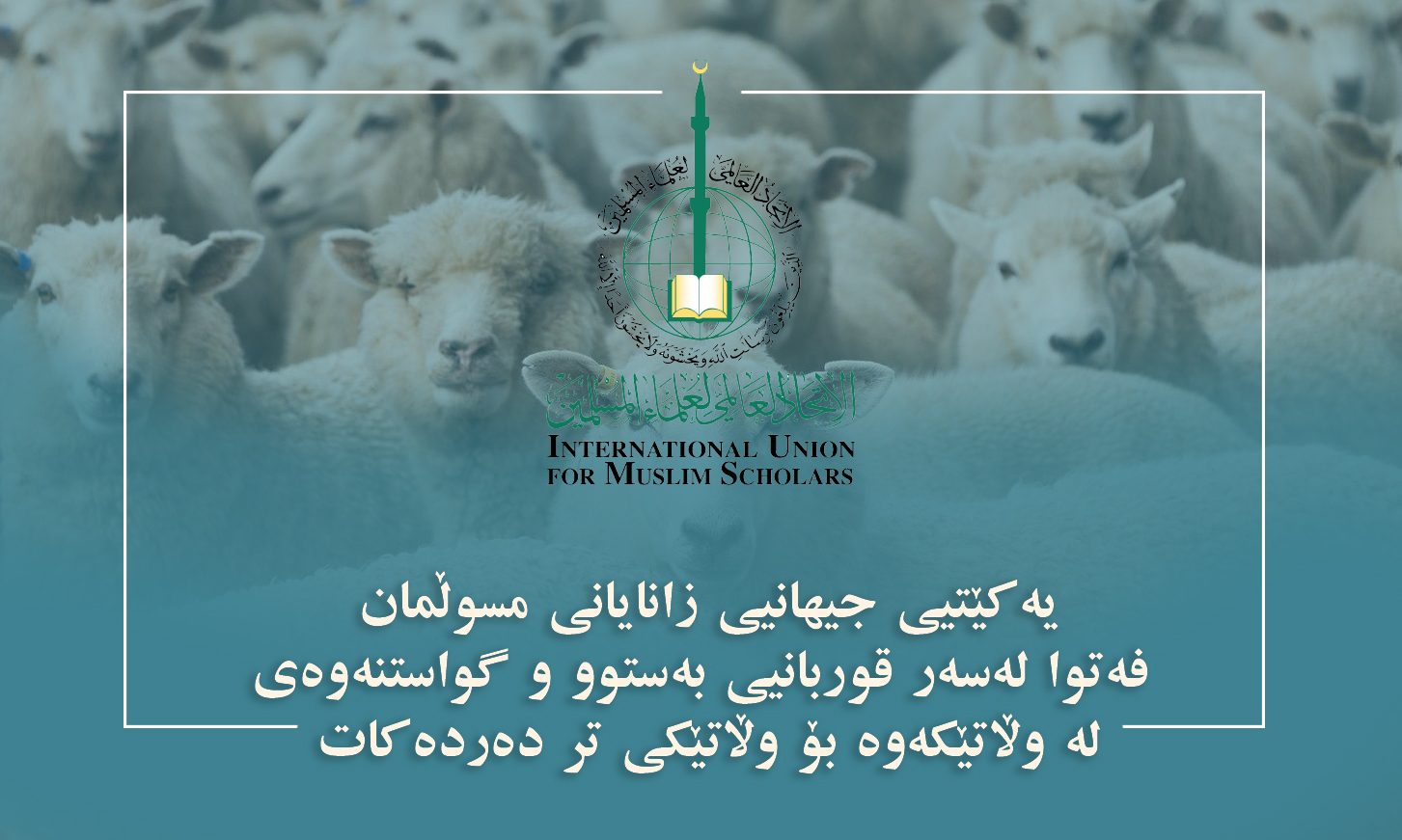Aug 09 2025

The Correct Definition of Qurban:
Qurban refers to the animal that is slaughtered for the sake of drawing closer to Allah the Almighty on the days of Eid al-Adha, from among lambs, goats, cattle, and camels. One lamb or one goat is sufficient for one person, but one cow or one camel is sufficient for seven people. A condition for the Qurban is that the animal must be healthy and free of any defect that affects its meat or appearance. According to the majority of scholars, it is not a problem if it is castrated, just as it is not a problem if its horns and testicles have been removed.
The Qurban must not be clearly one-eyed, nor clearly sick, nor clearly lame, and it must not be lean and without meat. No meat from the Qurban should be given to the butcher in exchange for his work (his wages), just as none of it, neither meat nor hide, should be sold. All parts of the Qurban must be given in charity, even its hide and wool.
What is desired from a Muslim is to choose the best animal in terms of its meat and fatness, and to avoid those with defects, due to this verse: (That [is so]. And whoever honors the symbols of Allah - indeed, it is from the piety of hearts).
The Ruling on Qurban:
The view of the majority, which has the most evidence from the Quran and Sunnah, is that the ruling of performing Qurbani is that it is a great symbol and a confirmed Sunnah, and it is not obligatory (fard) on the pilgrim nor on anyone else. Although the Hanafis and those who agree with them say that performing Qurban is obligatory (wajib), based on the command in the verse: (So pray to your Lord and sacrifice), as Qatadah, 'Ata, 'Ikrimah, and a number of others interpreted "sacrifice" (wanhar) as the Qurban, because they say a command, means it is obligatory. In contrast, the majority of scholars present strong evidence and say: that a command means it is obligatory is a matter of disagreement. The majority view is that it is only a request, and it is the contextual clues that determine whether it is for obligation, encouragement, guidance, or permissibility. Also, "sacrifice" (wanhar) is not specific to the Eid Qurban; it could be intended to mean the sacrifice of Hady, as the Surah is Meccan.
We also have a hadith that is evidence for it not being obligatory. The Prophet ﷺ said: "When the ten days [of Dhu al-Hijjah] begin, and one of you wants to perform Qurban, let him not touch any of his hair or skin." Since he said "wants" (arāda), this is evidence of choice.
There are many other hadiths that are evidence for the legitimacy of Qurban and its virtues and greatness, upon which there is a consensus, as Ibn Qudamah has mentioned in (Al-Mughni).
However, Qurban is different from and better than general charity. Some scholars have said that donating the monetary amount of the Qurban is better, and this is narrated from Lady Aisha, may Allah be pleased with her. But the first view is sounder.
Timing of The Qurban:
The time for performing Qurban is on the tenth day of the month of Dhu al-Hijjah, after the Eid prayer or an equivalent amount of time after sunrise, until the sunset of the fourth day of Eid, meaning the 10th, 11th, 12th, and 13th of the month of Dhu al-Hijjah. There is no issue in performing the Qurban during the day or night of these four days. What is important is that it is from after the Eid prayer until the sunset of the fourth day of Eid, which is the 13th of the month. Whatever time is better for the poor, that time is best.
The Agent of the Sacrificer:
By the consensus of scholars, it is permissible for the sacrificer to entrust the task to other people to slaughter the Qurban, but it is better if the sacrificer is able, that he slaughters his Qurban himself.
The Permissibility of Giving Money to Charitable Institutions for This Purpose:
What charitable institutions do in collecting the cost of the sacrifices and then slaughtering the Qurban in all branches in low-income and destitute countries is legitimate by the consensus of scholars. If the institution is trustworthy and known for good works, no objection should be expressed, and it should not be viewed with suspicion.
One Qurban for All Members of a Family:
One Qurban is sufficient for all the members of one family, as Muslim narrated in his Sahih that Lady Aisha, may Allah be pleased with her, said that the Prophet ﷺ brought a ram to sacrifice it. He laid it down and then said: (In the name of Allah, O Allah, accept this from Muhammad, and from the family of Muhammad, and from the Ummah of Muhammad). Then he sacrificed it. Moreover, the Prophet ﷺ sacrificed two horned, black-and-white rams. In another narration, it says: "For the second one, he said: From those who have believed in me and affirmed me from my Ummah."
However, it is better for whoever has the ability to perform more Qurban.









